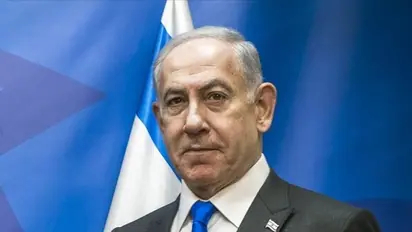Global backlash grows as mounting International isolation for Israel brings headache to Netanyahu's govt

Synopsis
International alarm escalates as allies express deepening doubts over Israel's Gaza offensive following a devastating terror attack. Canada's arms export suspension, EU's urgent ceasefire call, and US-Israel tensions highlight mounting pressure. Global focus shifts towards halting the conflict and addressing the dire humanitarian crisis in Gaza.
Amid escalating casualties and the looming threat of famine, Israel faces growing skepticism and criticism from its closest allies regarding the ongoing conflict in Gaza. The aftermath of the October 7 terror attack, which resulted in 1,160 deaths and 250 hostages, has intensified global apprehension and calls for immediate action.
Israeli Prime Minister Benjamin Netanyahu's steadfast determination to launch a ground offensive in Rafah, Gaza, despite the dire humanitarian situation affecting over 1.1 million displaced civilians, has triggered widespread alarm. Netanyahu contends that the offensive is crucial to eradicate Hamas, an organization classified as a terrorist group by the US, EU, and other nations.
The mounting death toll and the potential humanitarian catastrophe have spurred urgent pleas for a ceasefire from around the world. The United States, traditionally shielding Israel at the UN Security Council, encountered discord as President Joe Biden clashed with Netanyahu over the proposed ground offensive. Although the US has consistently vetoed resolutions calling for an immediate ceasefire, strains within the alliance are becoming more apparent.
Efforts to secure a resolution were stymied by opposition from China and Russia, complicating the diplomatic landscape. Meanwhile, US Secretary of State Antony Blinken's diplomatic endeavors in the region offer a glimmer of hope for a potential ceasefire agreement.
On the international stage, Canada's decision to suspend arms exports to Israel marks a significant shift, aligning with other nations reassessing their support. Within the European Union, Spain has emerged as a vocal critic of Israel's military operations, urging a halt to the violence and emphasizing humanitarian concerns.
The collective EU statement emphasizes the urgent need for an immediate ceasefire, the release of hostages, and the provision of crucial humanitarian aid. The EU has called on Israel to refrain from proceeding with the planned ground operation in Rafah to avert further escalation of the crisis.
Check the Breaking News Today and Latest News from across India and around the world. Stay updated with the latest World News and global developments from politics to economy and current affairs. Get in-depth coverage of China News, Europe News, Pakistan News, and South Asia News, along with top headlines from the UK and US. Follow expert analysis, international trends, and breaking updates from around the globe. Download the Asianet News Official App from the Android Play Store and iPhone App Store for accurate and timely news updates anytime, anywhere.